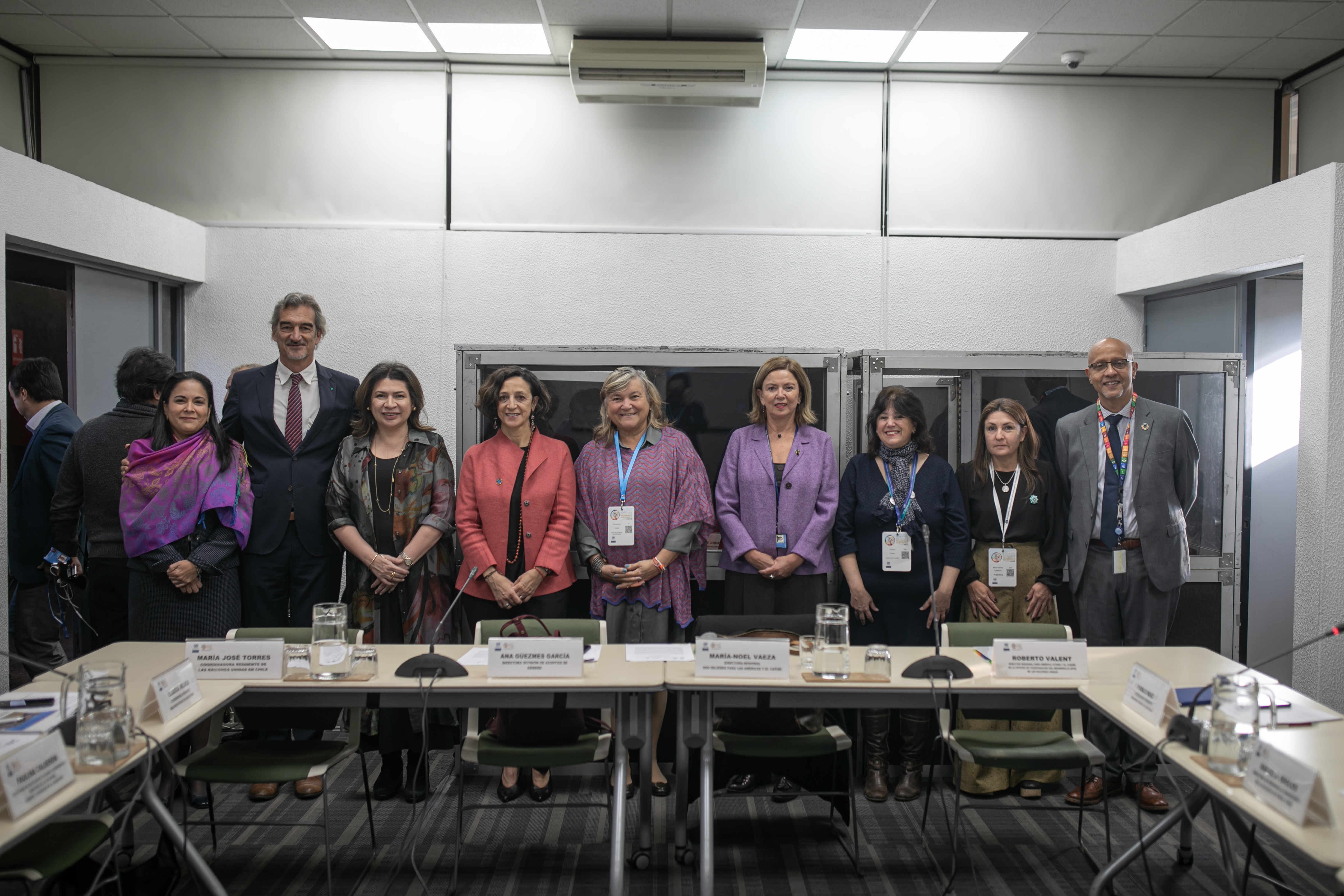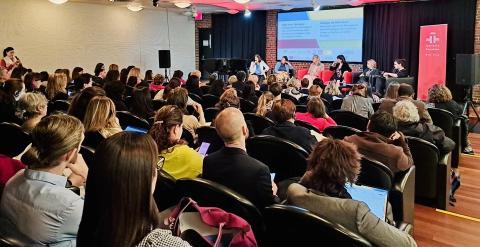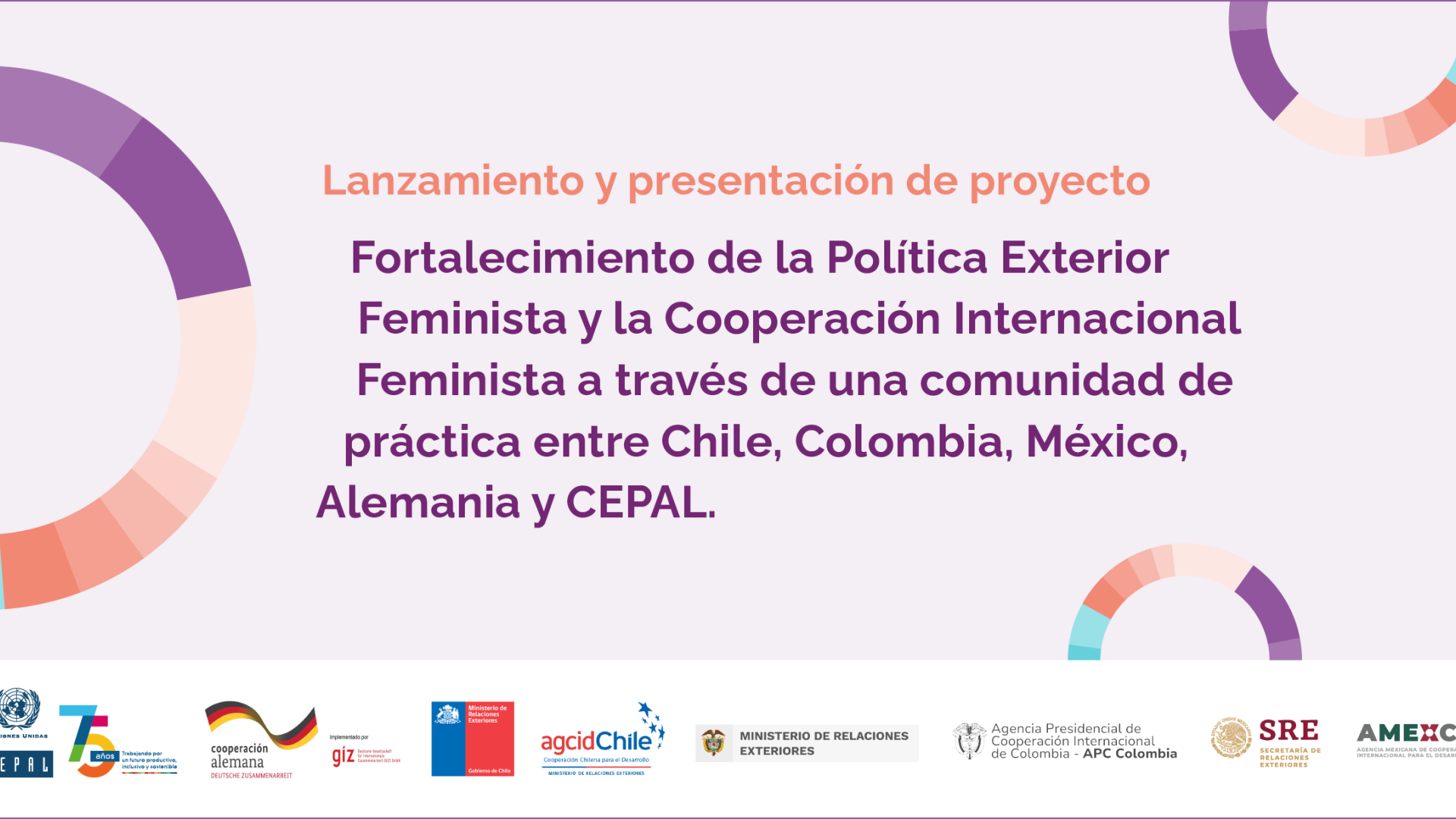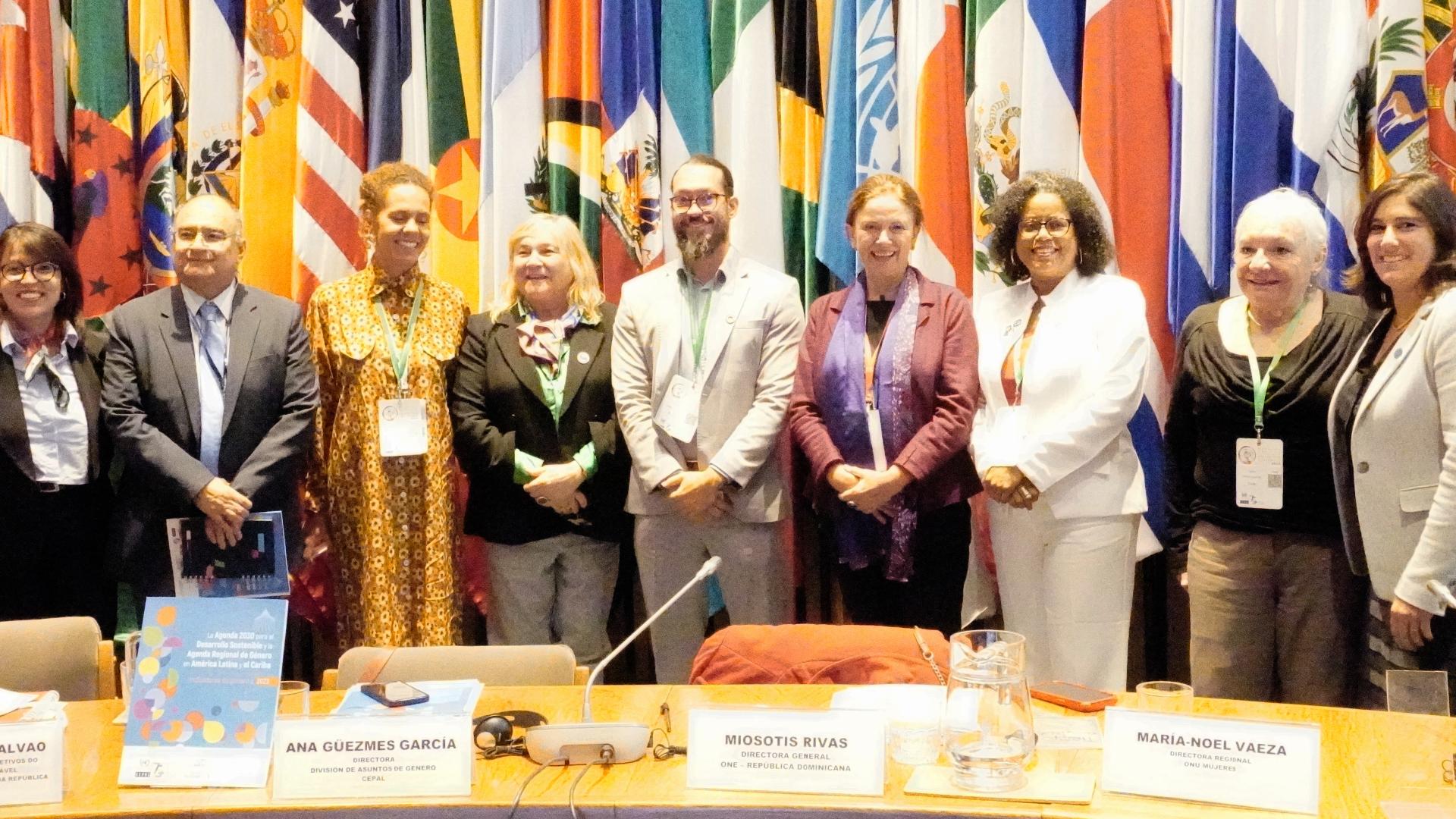News
"The Regional Gender Agenda, is a key instrument for advancing towards sustainable and inclusive development. The Buenos Aires Commitment proposes a path towards a care society, with agreements in novel areas for transformative recovery with gender equality and sustainability. Care is recognized as a need, as work, and a right to provide and receive care and to exercise self-care. It calls for measures to overcome the sexual division of labour and move towards a fair social organization of care, in the framework of a new development model that fosters gender equality in the economic, social and environmental dimensions of sustainable development."
This was one of the reflections shared by the Chief of the Gender Affairs Division of ECLAC during the event titled "The Care Society as a Horizon and the Buenos Aires Commitment as a Roadmap in Latin America and the Caribbean," which took place in a hybrid format on April 25th. The event had the participation of representatives from the governments of Argentina, Chile, and Uruguay, as well as the United Nations Resident Coordinator Offices in those countries. Ana Güezmes noted that there are currently various projects and policies in the region that represent progress towards the construction of a care society, highlighting those experiences that were implemented with the support of the United Nations System.
María-Noel Vaeza, Regional Director of UN Women for the Americas and the Caribbean, emphasized the importance of discussing the financing of comprehensive care systems to ensure their sustainability, as well as the need for governance models involving women, civil society, and governments. She called for continued joint efforts towards creating comprehensive care systems that incorporate a community perspective. To conclude the opening remarks, Roberto Valent, Regional Director for Latin America and the Caribbean at the United Nations Development Coordination Office (DCO), affirmed that the role of partnerships with civil society and governments is crucial. He specifically highlighted the participation of civil society in the design and implementation of comprehensive policies through spaces of dialogue and collaborative work. He stated that this particular event is a clear example of these partnerships that have borne fruit in terms of advancing gender equality and sustainable development.
Claudio Castro, Mayor of Renca Municipality, Chile, and Daniela Eroles, Director of Community Development of the same municipality, shared their experience participating in the project for the Economic Reintegration of Women implemented by several agencies of the United Nations System in Chile. “In Renca we want to move towards a caring commune, hence, the project has a territorial perspective and that is the main design that we are working on nowadays, in which the community is trained so that everyone can provide care. At the same, the municipality is articulated with foundations, international organizations and the central covernment, thus, we are capable to articulate a pertaining offer that allows us to recognize, redistribute and reduce care work in Renca”, the Mayor stated. The Director of Community Development referred to the project's phases and projections and shared some insights. She stated, "This work has allowed us to organize our perspective and articulate our care offer, but above all, to make caregivers visible."
Paulina Calderón, Secretary of Equality and Diversity Policies at the Ministry of Women, Gender, and Diversity of Argentina, discussed the country's experience in the framework of the United Nations-driven project for socioeconomic recovery from the COVID-19 crisis with a gender perspective. She reaffirmed the Buenos Aires Commitment, which positions care as a right. She highlighted some government efforts, including the Interministerial Care Policies Roundtable, breastfeeding support packages, Article 179 of the Labor Contract Law, the Care Infrastructure Network of the Ministry of Public Works, the "Cuidar en Igualdad" campaign, the "Registradas" Program, and Argentina's request for an advisory opinion from the Inter-American Court of Human Rights on care as a human right. One of the main results of a joint project between the government of Argentina and the United Nations System was the Federal Care Map (available in Spanish).
Mónica Bottero, Director of the National Institute for Women (INMUJERES) at the Ministry of Social Development of Uruguay, shared the country's experience in the project for Strengthening Socioeconomic Response to the COVID-19 Emergency promoted by the United Nations. She referenced its three components: employability and care, data, and tools for implementing local public policies. She highlighted the launch of Uruguay's third Time Use Survey in March of this year, which confirmed the reality that women perform twice as much unpaid work as men in the country. According to the Director, this measurement is a fundamental input for further strengthening Uruguay's care system. She stated, "This project involved significant learning and was an important exercise within the United Nations intergovernmental team and among ourselves. As an exercise, it was already worthwhile, but most importantly, it created tools and instruments for public policy and supported numerous communities of women, children, and adolescents living in remote areas far from the capital, where public policies often have a weaker presence."
Following that, María José Torres, United Nations Resident Coordinator in Chile, Claudia Mojica, United Nations Resident Coordinator in Argentina, and Pablo Ruiz, United Nations Resident Coordinator in Uruguay, highlighted the lessons learned from the joint work between United Nations agencies and government counterparts, and discussed opportunities to advance the implementation of the Buenos Aires Commitment in terms of care policies and systems. The representatives of the United Nations System highlighted the recovery plans implemented during the COVID-19 pandemic through interagency programs that prioritized women's economic autonomy, with lessons and best practices that can be applied beyond the pandemic in the long term. In this regard, they agreed that progress in the design and implementation of care policies is essential. The United Nations representative in Argentina declared, "The ambition to advance towards a comprehensive care policy lies at the heart of our commitment to sustainable development."
In closing, Ana Güezmes highlighted the joint and concrete advances of the region towards gender equality and the need to put all efforts into implementing the Buenos Aires Commitment, which serves as a roadmap for care over the next three years. She also called for continued cooperation and multilateralism. The Chief of the Division concluded, "I want to insist on the need to continue building bridges to leave no one behind. Let's keep moving forward together in the construction of a care society. Let's make the civilizational change demanded by our time."



